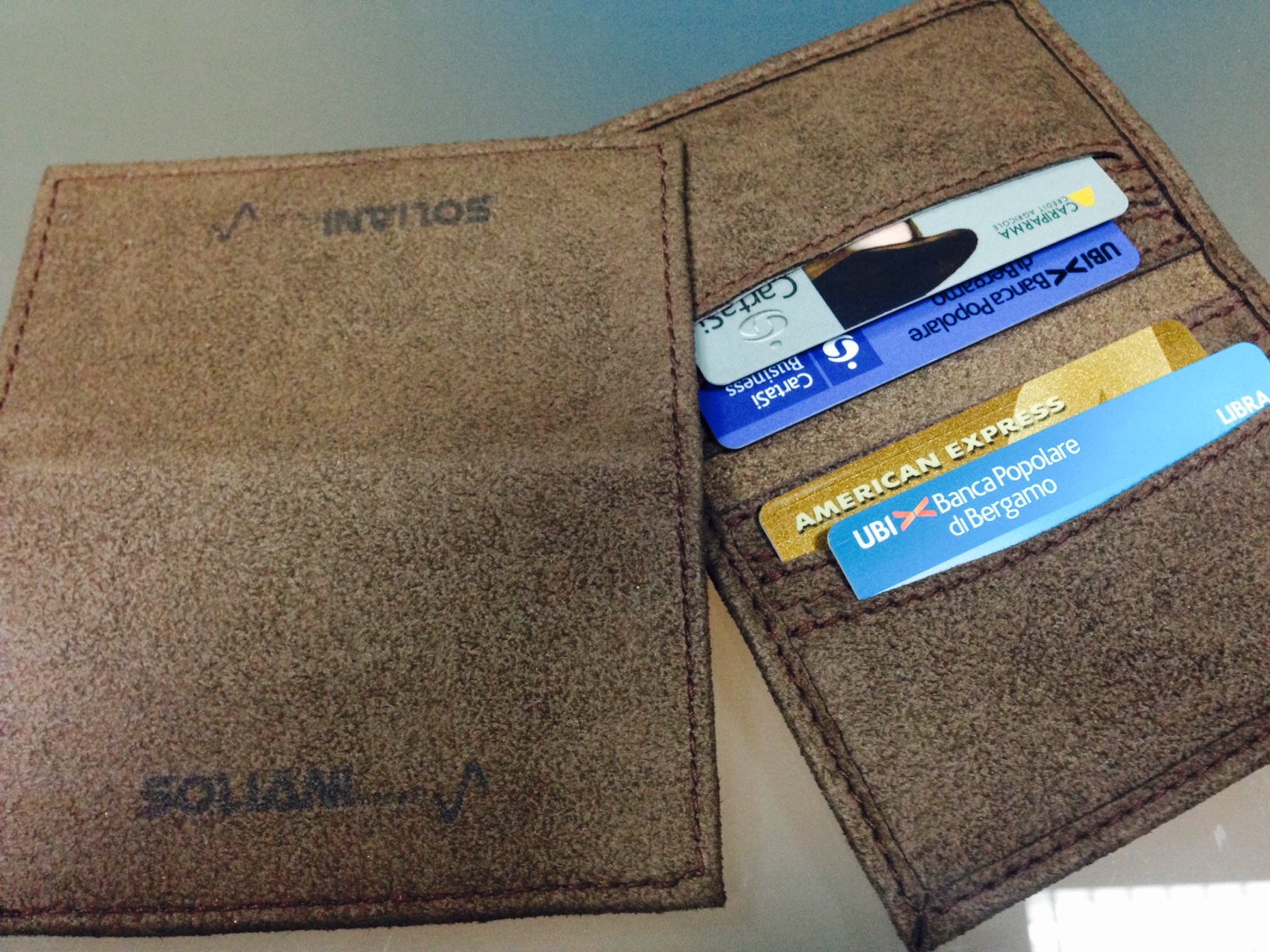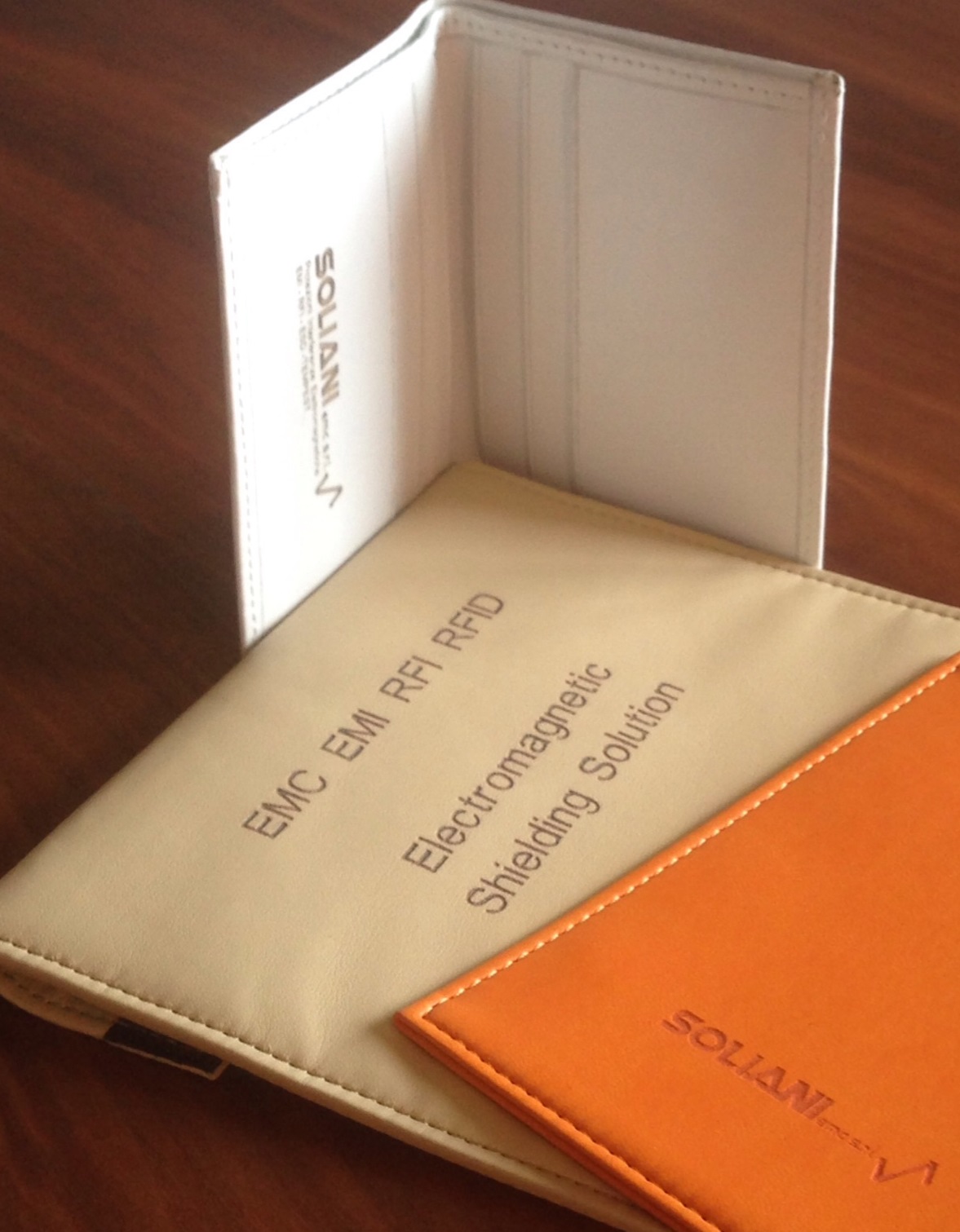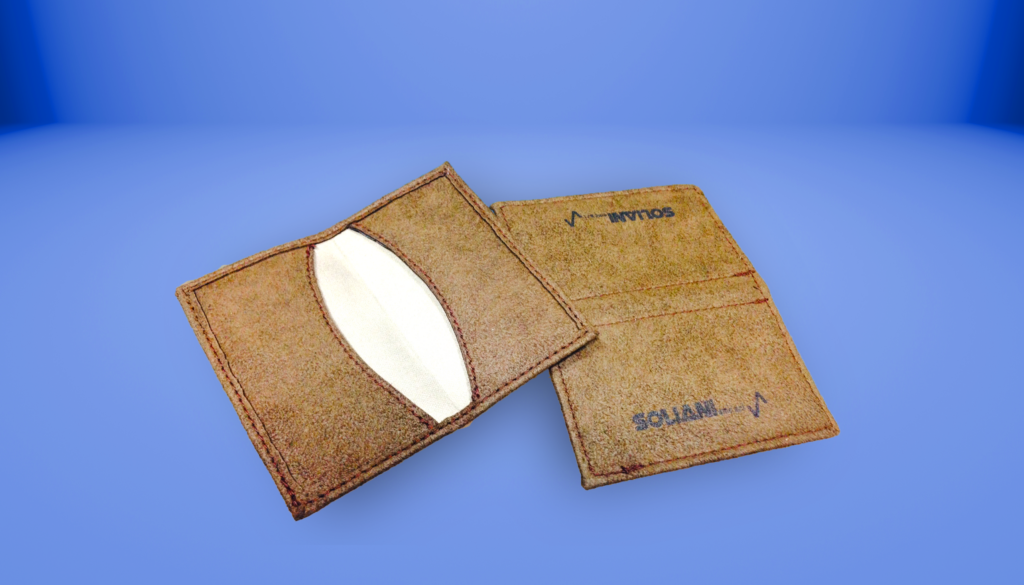Description
Shielding Card Holders
Shielding card holders are made with a special coating on each fiber, designed to hinder electromagnetic emissions and ensure data security.
Radio Frequency Identification (RFID) is a technology that enables the identification of credit cards, passports, or driver’s licenses in front of a scanner, eliminating the need to read the magnetic stripe code. The operation is straightforward: the electronic scanner sends a signal that is received by an antenna connected to the RF microprocessor of the card. The microprocessor is activated, allowing the reader to recognize the card.
This technology is also used in access control systems and attendance detection, via electronic badges with an integrated RFID microchip (also called transponders or tags).
Advantages and Risks
The advantages of RFID cards include convenience, speed, and the elimination of physical contact with the card. However, there are also significant risks. RFID chips can be easily read, copied, and manipulated by unauthorized individuals.
It is important to note that the microchips in electronic badges, with few exceptions, respond passively to external RFID readers, whether in authorized or fraudulent detection. Stolen data can lead to the creation of clones that can be improperly used if the electronic badge is not adequately protected. For handheld devices with an integrated antenna, the reading distance is about 120 mm, but with greater technical effort, this distance can be increased.
Other common electronic devices, such as tablets or smartphones, can also be intercepted or manipulated from a distance. Although they do not use RFID technology, they emit electromagnetic waves and can be targeted by external attacks aimed at stealing confidential data.
Protection Solution
To protect devices, textiles developed by our company can be used, specially treated to shield against electromagnetic emissions. These fabrics, which appear normal, feature a special coating on the fibers that prevents unauthorized individuals from acquiring sensitive data. We offer bags and cases in various sizes, made from different materials depending on the level of shielding required, covering a wide spectrum of frequencies.
Our company has conducted specific qualifications at the laboratory of the European Community, Joint Research Centre Institute for the Protection and Security of the Citizen, according to the EMC Shielding Sleeves ISO 7810ID-1 and ID-3 standards, using credit cards and international passports as operational tests, successfully passing the assessment.
Additionally, devices known as RFID Zappers are available on the market, which collect data without leaving traces, allowing manipulation of other cards.









